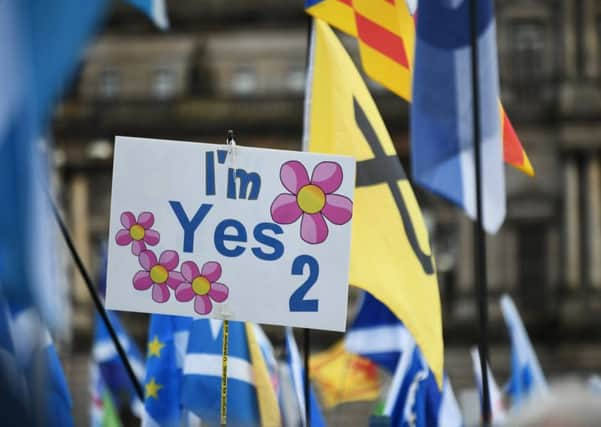The unstoppable tide towards independence is coming for many reasons – Kenny MacAskill


That isn’t reflected on the other side. The Unionist community isn’t growing; indeed, it’s fragmenting as Scottish Labour’s internal debate shows. They’ve deep pockets but they lack numbers, there’s no equivalent of Yes Marches. If they had, Rory Stewart or others would long have sought to act as a pied piper rather than building lonely cairns along the Border. Orange Marches and Loyalist demonstrations that shamefully have been pandered to by leading Unionists are ugly, brutish and entirely counterproductive.
Opposing Indyref2 never hit the mark as a campaign theme in an election that was fought on other issues and especially Brexit and the spectre of a Tory Government. Unionists’ claims that there’s no mandate, despite the result of the 2016 Holyrood elections, are equally undermined by the fact that they put a specific issue to the electorate and were roundly gubbed.
Advertisement
Hide AdAdvertisement
Hide AdSo, come it will and it’s just timing to be decided. There are other factors that’ll lead to that, not just the growing clamour. “Just Get Brexit Done” was a vacuous phrase but it resonated with some far beyond the echo chamber of Tory backbench MPs in Westminster. An end to what was seen as a damaging and interminable debate was wanted by many south of the Border. They didn’t really want it but felt it inevitable. Some had even voted Remain but could see Leave and a Majority Government as the only solution and so they opted for Johnson.
Polling shows that a small majority wants another referendum but an overwhelming majority think it’s coming soon whether they want it now or not. That’ll have parallels with south of the Border as even former No voters, or even some intent on still voting No, say just “get it done”. It’s not just those who are committed to it but those exhausted by it who’ll insist that it comes.
Added to that are those who see a parting of the ways coming. That’ll only be fuelled by Johnson. His intransigence irks many but his very persona irritates even more. He’s the archetypal Upper-Class English cad that’s found so revolting by ordinary Scots irrespective of where they stand on the constitution. But he’s not a character in a PG Wodehouse novel but Prime Minister of the United Kingdom.
As he pursues his “transformative” agenda many Scots will baulk. They may not want independence but they certainly don’t want to be part of his revolution. It’s not about turning Britain into some economic miracle where all are treated fairly and poverty and inequality are removed. Instead it’s about replicating a 51st state of the union where capitalism runs riot, the environment’s devastated, and inequality and destitution are rampant.
Given the choices on offer the risks of an independent Scotland pale into insignificance. It’s what’s happened in other lands. The Irish Free State saw middle-class Ireland and the bankers and lawyers from their establishment, albeit not the Anglo-Irish ascendency, come on board. Similarly, when resurgent Russian nationalism forced the Soviet Union’s collapse. There elites and establishment, whether Communist or not, saw little alternative but to break free. Even big business may begin to shift. Large retailers and financial institutions felt free to predict woe in the last Indy vote. They’ll be warier this time given what’s come to pass. Moreover, as they say it’s stability they want. Big Business has coalesced around Johnson’s Withdrawal Agreement as the least bad option and something they can work around. There might come a time where they conclude a referendum and even independence is inevitable and act accordingly. Capitalism, as they say, has no country.
All that is shown by growing desperation in the uber unionist fan club. For there are ultra-unionists as there are cybernats, both can be ugly, but also reflective of camp morale. The hysteria of the former has increased exponentially since the election. Doom and austerity predicted almost with glee. Their economic arguments can be rebutted but what’s most striking is that it’s invariably wealthy people making that claim, yet it’s the poor who are most desperate for independence. That in itself tells a story. It’s their vested interests in the union that they’re protecting whereas independence is seen as salvation by those with little to lose. The economic case for independence needs making but many will vote regardless and for different reasons.
Kenny MacAskill is SNP MP for East Lothian